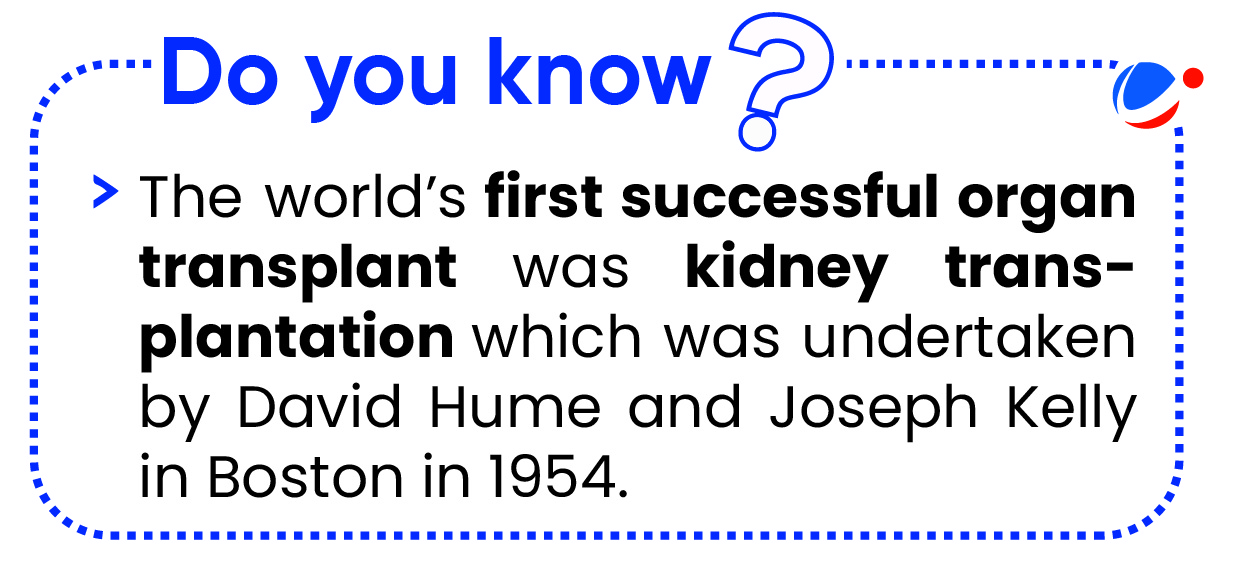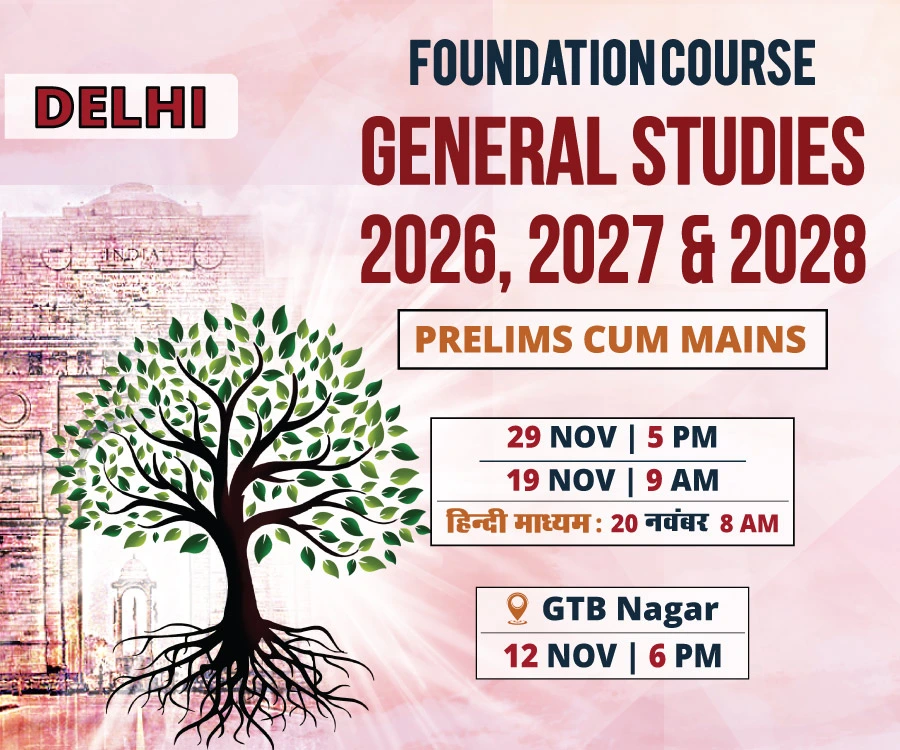Why in the News?
Union Ministry of Health and Family Welfare has issued a directive to states/UTs to allocate a unique National Organ and Tissue Transplant Organisation (NOTTO)-ID to all cases of organ transplants.
Key highlights of directives
- NOTTO-ID must be generated by the hospital from the NOTTO website.
- NOTTO-ID is mandatory for considering the allocation of organs in case of a deceased donor transplant.
- In case of a living donor transplant, NOTTO ID shall also be generated maximum within 48 hours after the transplant surgery is done.
- Appropriate Authority of the State, appointed under the Transplantation of Human Organs and Tissues Act (THOTA), 1994, should investigate transplants involving foreign nationals.
- Any complaints of rule violations must also be investigated and appropriate follow up action to be taken.
- Devise a system of regular inspection of the registered hospital for transplant/ retrieval by and to monitor them onsite on the quality of transplantation, post operative follow-up of the donor and recipient, and outcomes.
The directives were issued taking the cognizance of surge in the number of organ transplants related to foreigners in the country and recognising the need for monitoring of such transplantation.
About organ transplantation in India
- Organ transplantation is the life-saving therapy for end-stage organ failure. It refers to the grafting of any human organ from any living person or deceased person to some other living person for therapeutic purposes.
- India is the 3rd country in the world after the USA and China, in terms of the total number of transplants done in a year.

- Organ transplantation in India relies predominantly on living donor procedures for kidney and liver transplantation.
- Heart, lung, Pancreas, and Small bowel transplants are therefore less frequent.
- 2023, revised guidelines for organ donation and transplantation by Centre included following changes
- The upper age limit of 65 years for eligibility for registration to receive deceased donor organ has been removed.
- Removal of the domicile requirement of the state for registration of patients requiring organ transplantation from deceased donors.
- National Organ Transplant Program (NOTP) being implemented by the Centre to promote organ donation and transplantation across all States/UT. Following bodies have been established under the Act:
- National Organ & Tissue Transplantation Organization (NOTTO) located at New Delhi, the apex center for All India activities of coordination and networking for the procurement and distribution of Organs and Tissues.
- 5 Regional Organ and Tissue Transplant Organizations (ROTTOs)
- 14 State Organ and Tissue Transplant Organizations (SOTTOs)
- THOTA, 1994 as amended in 2011, is the primary legislation for regulating Organ Retrieval, Storage and Transplantation for therapeutic purposes and prevent commercial dealing in human Organs and tissues.
- It does not deal with the transplant of artificial organs.
Transplantation of Human Organs and Tissues Act (THOTA), 1994 as amended in 2011
|
Issues associated with organ transplantation
The organ donation rate in India has remained stable to less than 1 per million population (PMP) since 2013. To achieve self-sufficiency in organ donation the estimated rate would be around 124 PMP.
Some of the key issues associated with organ transplants are as follows
- Hospital Issues: Lack of information and training of BSD identification, certification and maintenance of organ donors, coupled with a shortage of manpower, suboptimal utilization, and lack of infrastructure.
- Inadequate government health budget: The vast majority of potential donors are indigent motor vehicle accident victims who are primarily treated in public hospitals.
- These hospitals generally lack the necessary infrastructure to support deceased donations.
- Private sector dominance: The advanced living donor infrastructure in India is increasingly accessed by foreigners, and private Indian hospitals are the preferred destination for it.
- Because of this the revenue, infrastructure, and expertise generated has been limited to the private sector.
- Accessibility issues: Tertiary hospitals handle most organ donations, but they are mostly located in urban areas.
- Abuse of law: Despite the THOTA, organ commerce and kidney scandals are regularly reported in the Indian media.
- Misconceptions: Lack of awareness about organ donation, also doctors are unwilling to ask for deceased donor organs. There is no incentive and also a fear of reprisals.
Ethical issues with Commercial dealings in human organs
|
Way Forward
- Infrastructure development: A dedicated Department of Intensive Care Medicine, Non-Transplant Organ Retrieval Centers (NTORC) and Organ Transplantation should be created in all medical colleges and major Government Hospitals.
- Strengthening NOTTO: There should be more manpower and budget in the NOTTO office for service, research, etc. An audit should be conducted at the level of NOTTO to evaluate the work done by ROTTO and SOTTO and they should be made accountable
- Affordability
- PMJAY- Ayushman Bharat Scheme: It included Kidney and Bone Marrow transplantation. There is a need to widen its ambit to include the Heart, Lungs, Liver, Pancreas and other Organs and the amount should be increased.
- Drugs like Immuno-Suppressants, Preservative solutions for Organ transportation & other Consumables required for Organ Transplantation should be made tax-free.
- Investment in R&D: Research on Organ Preservation and Organ Resuscitation using modern technology should be permitted using discarded/unutilised deceased donor Organs
- Awareness: Organ Donation Pledges have significantly increased in the country but awareness and ease of doing should be publicised. All driving licences should include a provision for pledging of Organs.
- Collaborative approach: Foster collaboration among different stakeholders to establish ethical guidelines and policies to govern emerging technologies in transplantation, such as xenotransplantation and gene editing.








